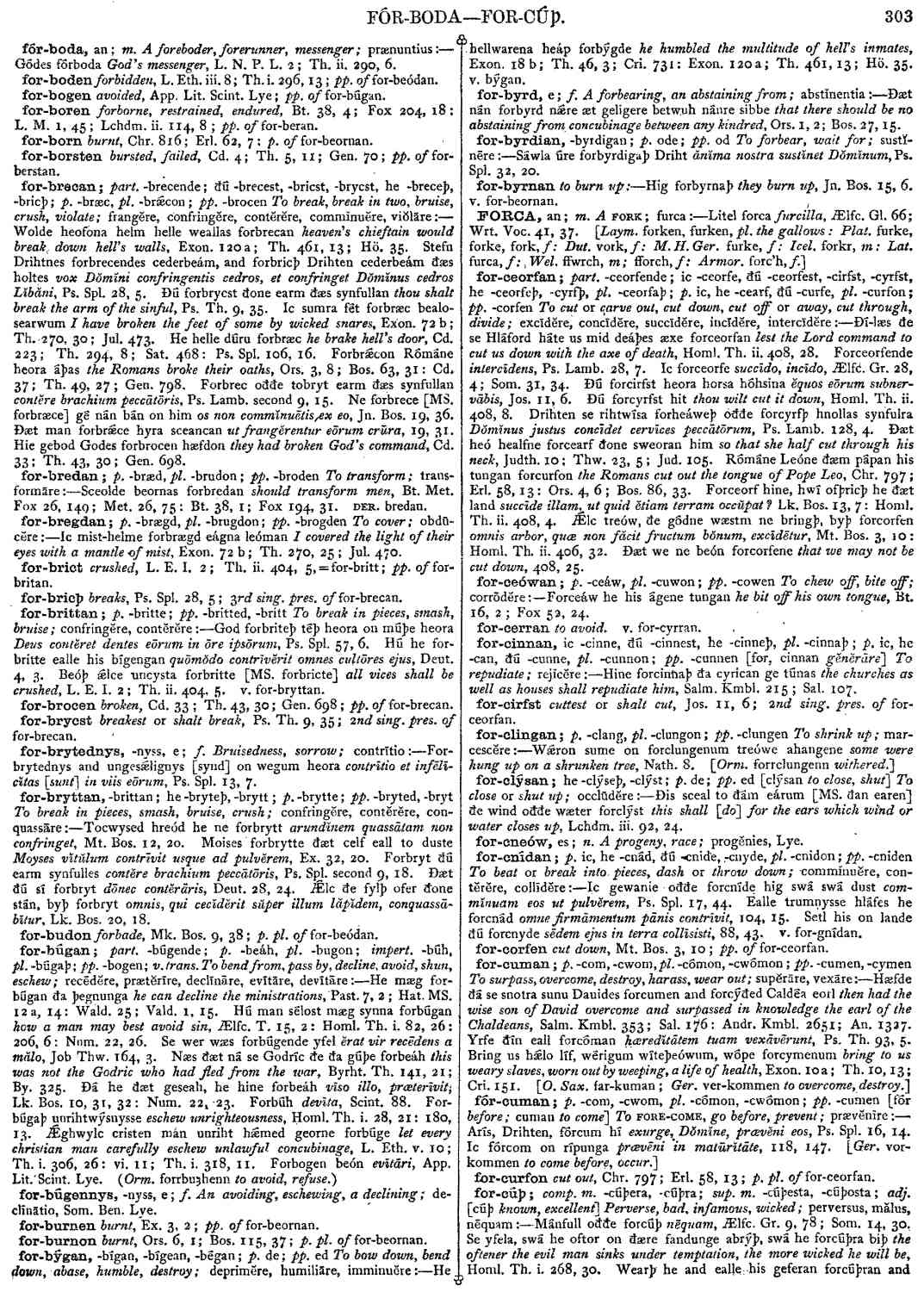for-cúþ
- adjective
-
Mánfull oððe forcúþ
nēquam,
- Ælfc. Gr. 9, 78 ;
- Som. 14, 30.
-
Se yfela, swá he oftor on ðære fandunge abrýþ, swá he forcúþra biþ
the oftener the evil man sinks under temptation, the more wicked he will be,
- Homl. Th. i. 268, 30.
-
Wearþ he and ealle his geferan forcúþran andwyrsan ðonne ǽnig óðer gesceaft
he and all his companions became more wicked and worse than any other creature,
- i. 10, 35.
-
Hí habbaþ ðæs mennisces ðone betstan dǽl forloren, and ðone forncúþestan [forcúþeran MS. Bod.] gehealden
they have lost the best part of humanity, and kept the worst [worse ],
- Bt. 37, 3 ;
- Fox 192, 4.
-
Oft ða eallra forcúþestan men cumaþ to ðam ánwealde and to ðam weorþscipe
the most wicked men of all often come to power and dignity,
- 16, 3 ;
- Fox 54, 21.
-
Hwæðer he wolde ðám forcúþestum mannum folgian
would it follow the most wicked men?
- 16, 3 ;
- Fox 54, 10, 27.
-
Ða Sodomitiscan menn wǽron ða forcúþostan
hŏmĭnes Sŏdŏmītæ pessĭmi ĕrant,
- Gen. 13, 13.
Bosworth, Joseph. “for-cúþ.” In An Anglo-Saxon Dictionary Online, edited by Thomas Northcote Toller, Christ Sean, and Ondřej Tichy. Prague: Faculty of Arts, Charles University, 2014. https://bosworthtoller.com/11253.
Checked: 1